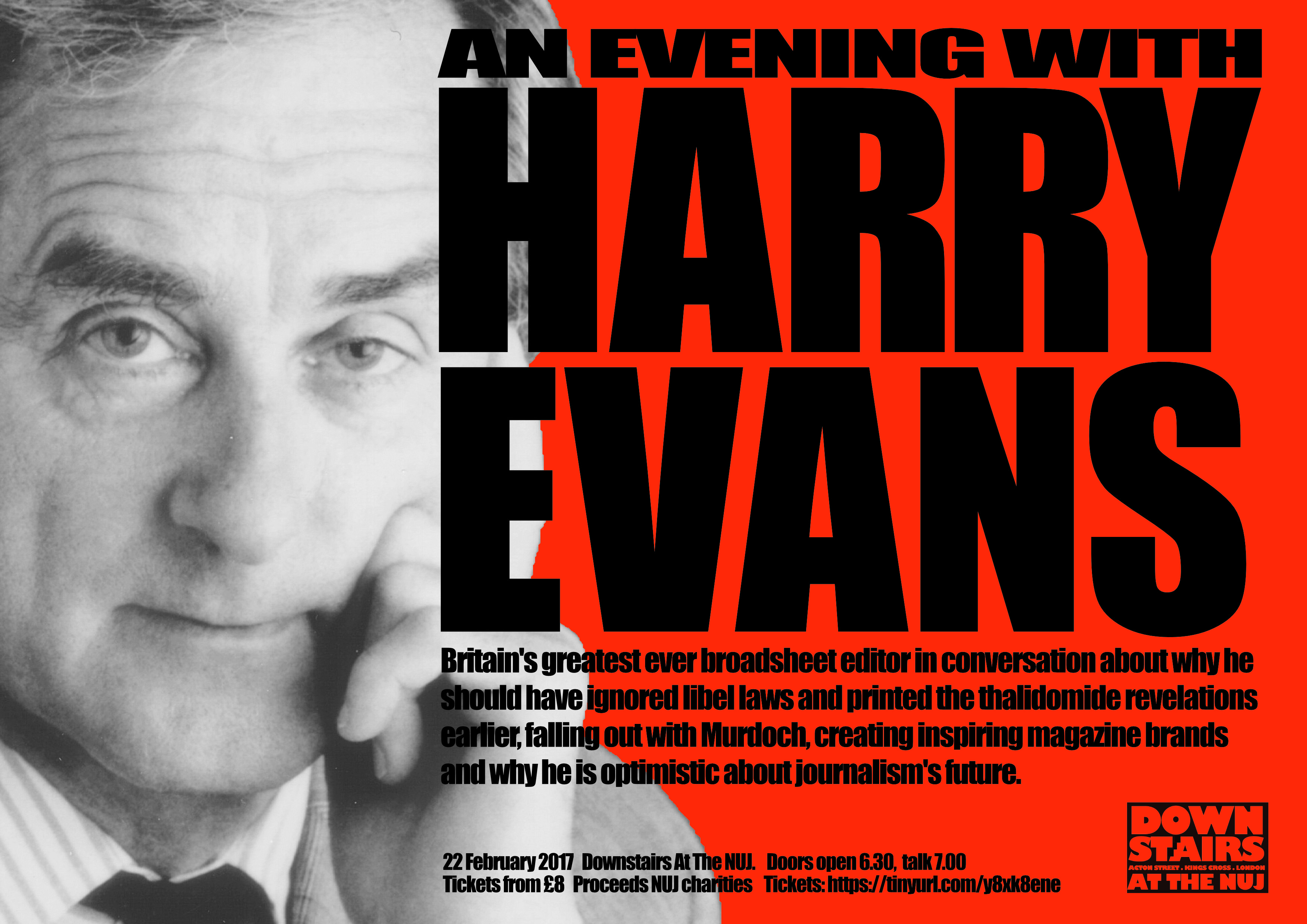Remembering Harry Evans

I danced a jig when Sir Harry Evans (who died in September 2020) responded to my speculative email. Anticipating little chance of acknowledgement, I nonetheless agonised over how best to address a Knight. Formalities, it turned out, were needless. “I will do it – Harry,” came his reply.
So it was that a hero whose image I had burnished for more than 40 years agreed to visit the NUJ’s headquarters for an interview in front of an audience. Now all I had to do was coral my enthusiasm and locate my inner chat-show host.
As a child I loved Evan’s Sunday Times – starting with the colour magazine and progressing to the main paper. Its combination of campaigning journalism, horizon-expanding features, and zeitgeisty morsals brightened immeasurably an otherwise bleak day in 1970s Yorkshire.

It was as a volunteer column-filler on my student newspaper that I became his disciple, however. Fancying I might one day make a living as a reporter, I devoured his five-volume manual on creating newspapers Editing And Design – particularly Newsman’s English and Pictures On A Page. Even now, as I contract sentences and process photographs, he speaks in my mind. “Keep sentences simple”. “Deploy the active voice”. “Close cropping accentuates drama”.
Not only a master of the craft, Evans also shaped my broader understanding of the media. Good Times Bad Times is his painful dissection of life serving Rupert Murdoch who took over the Times titles in 1981. A year later Evans departed. Editorial freedom was an anathema to Murdoch, he said at the time.
By the time he and I exchanged emails, Evans was a naturalised American, and had lived in Manhattan for over 30 years. My hopes of persuading him to spend a night under the spotlights in London rested on the scantest hunch. He intervened, reasonably regularly, in UK debates about press freedom. And in his autobiography, My Paper Chase, he warmly recounted NUJ meetings in 1940s Manchester.

I need not have worried. As we finalising details of our event, Evans wrote to me: “Just looked up to the corkboard above the keyboard and see pinned there a thick blue NUJ card (Manchester branch) signed by H.J. Bradley and sent to me when I was traveling in the US in 1956. As of that date, it testifies I was up to date with my dues…”
He resigned his membership upon taking up his first editorship, as was normal, but his emotional attachment to the union clearly ran deep.
By the time of our event, he was a few months shy of 90. Never a tall man, the craggy gent who emerged from a taxi in Acton Street had the frame of a fledgling sparrow. The energy, enthusiasm and intellect he radiated seemed in inverse proportion to his physique, however. The interview questions over which I had fretted, were quickly rendered superfluous. Before the audience, he told stories, advised, dissected current media malaise, and frequently had his audience in hooting with laughter.
Former colleagues from both The Times and Darlington’s Northern Echo (his first editorship) had travelled to be in the audience. He recognised them all and was quick to swap anecdotes and praise their talents.
The formal event over, we repaired to the Chapel Bar upstairs, where Evans held court for another couple of hours. His publishers gave us trade prices on two boxes of his latest book Do I Make Myself Clear (he has written nearly 30). Every one of them sold and were signed by the author resulting in nearly £1,000 raised for NUJ Extra.
Eventually, I called a taxi and escorted him to the door. His eyes still sparkled, and as the taxi drew up he surprised me with a bear hug of enormous power. It nearly upended us both. Night air closed in as his tail lights rounded Grays Inn Road, but I was electrified.
With my eyes closed, I can still feel his arms around me just as I hear his injunctions when I write. Ninety two and still on top form is a great way to bow out. His legacy – radiating inspiration – will resonate long into the future.